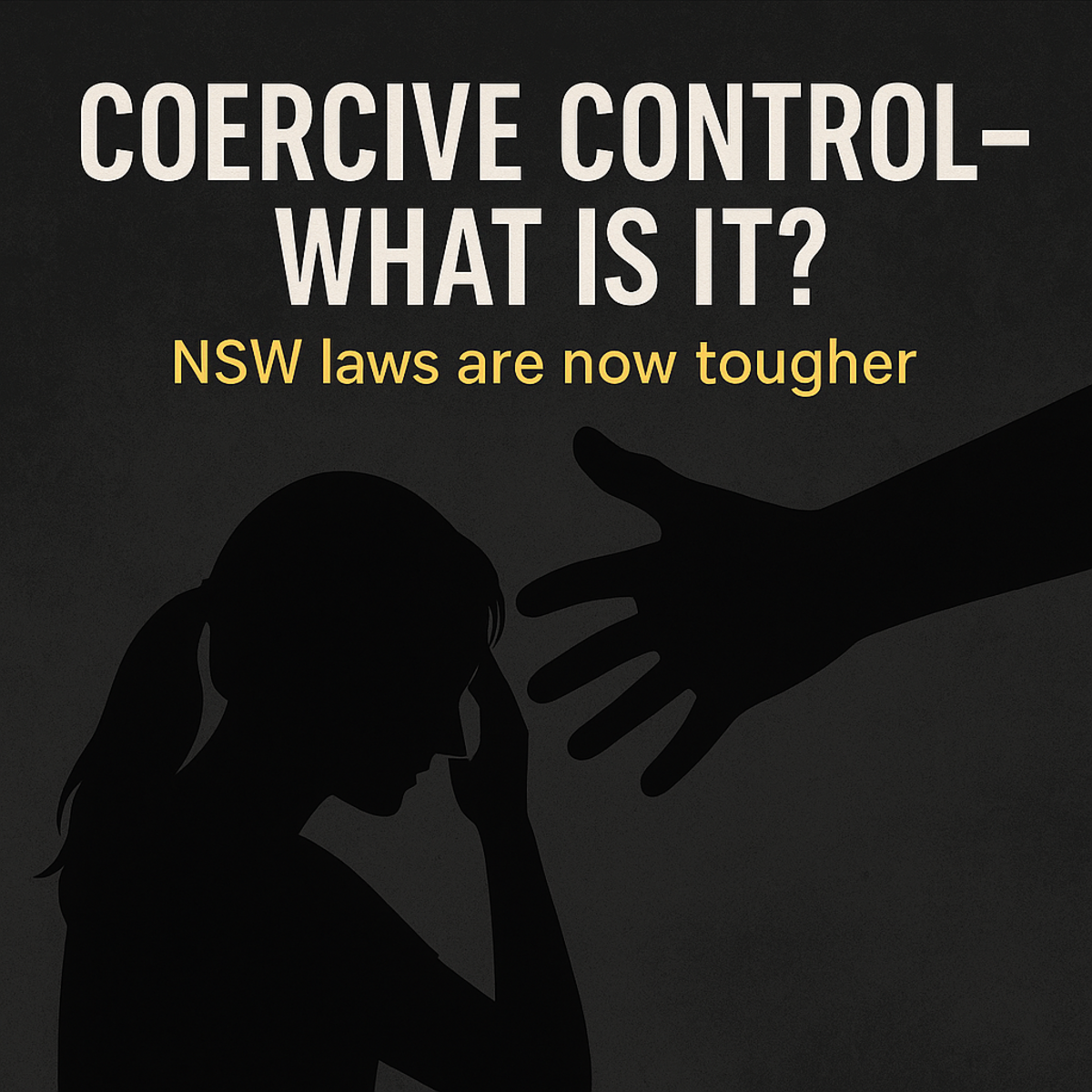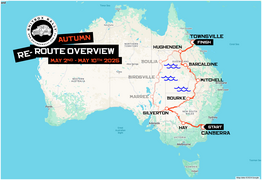Coercive control - what is it? NSW laws are now tougher
Krista Schade
15 May 2025, 2:00 AM

Coercive control is now a crime in NSW — here’s what it looks like, who’s at risk, and what the law means for survivors.
Coercive control - what is it? NSW laws are now tougher
Coercive control is when someone repeatedly hurts, scares or isolates another person to control them.
From July 1, 2024 coercive control became an offence in NSW.
The criminal offence captures repeated patterns of physical or non-physical abuse used to hurt, scare, intimidate, threaten or control someone.
Unfortunately, the law only applies to abusive behaviour that happens after 1 July, 2024.
Coercive control can be hard to spot because it often starts slowly or builds up over time.
Coercive and controlling behaviours can be subtle, and the abuser often hides what they are doing from others, making the victim feel like they are going crazy or "making too much of it."
The abuse does not have to be physical.
Coercive control can happen in other types of relationships. However, the legislation will be tested in current and former intimate partner relationships in the first instance, according to NSW Government information.
Research shows that it is most dangerous within intimate relationships and suggests 1 in 4 women and 1 in 14 men have experienced intimate partner violence since age 15.
In addition, 1 in 4 women and 1 in 7 men reported experiencing emotional abuse by their spouse or de facto partner since age 15.
For women, pregnancy, early motherhood and separation can be times of increased risk for women. The abuse might begin during these times, get worse, or happen more regularly.
Coercive control is a factor in 97% of intimate partner murders, according to the NSW Government.
The NSW Domestic Violence Death Review Team found nearly 80% of all victims of intimate partner violence homicides that occurred in NSW between 2000 and 2018 were women.
Worryingly, coercive control has been strongly linked to intimate partner homicide.
The NSW Domestic Violence Death Review Team found that in 97% of intimate partner domestic violence homicide cases, the victim had experienced coercive and controlling behaviours before being killed.
Those living with a disability, and the elderly, are also at increased risk of abuse from a range of people, including intimate partners, family members, paid or unpaid carers or other residents in supported accommodation facilities.
Coercive control takes many forms, but red flags include:
- Isolation: A partner consistently prevents the other from seeing family or friends, controls their communication (e.g., monitoring phone calls, social media), or restricts their movements.
- Intimidation: This could involve threats of physical violence, but also includes threats to harm the victim's loved ones or pets, or using intimidating behaviour to create fear.
- Control over daily life: The perpetrator dictates what the victim can wear, eat, or how they spend their time. They might make all the decisions about where the victim lives, works, or what they purchase.
- Economic or financial abuse: This involves controlling the victim's access to money, preventing them from working, or unreasonably restricting their financial independence.
- Monitoring and surveillance: This can include tracking the victim's movements, checking their devices, or using technology to keep tabs on them.
- Psychological abuse: Examples include constant belittling, humiliation, gaslighting (making the victim doubt their own sanity), and other manipulative tactics.
- Shame-based conduct: This involves the perpetrator using shame or humiliation to control the victim. Examples include mocking a partner's weight or appearance, or sulking or becoming angry if sexual advances are rejected.
The challenge now comes in the sentencing of those brought before the courts.
The first case in NSW to be prosecuted occurred in the Riverina, and came before Magistrate Wright last December.
The defendant pleaded guilty to financial abuse, controlling his partner's phone and using padlocked doors to keep his victim isolated.
Evidence presented to the Court included a statement to the victim: "This will be your last night, I am going to murder you".
In court, NSW Police urged Magistrate Wright to consider the victim's safety.
"[The offender has] no indication of any remorse," the prosecutor said at the time.
"[We are] asking you to consider the safety of the complainant as paramount."
Magistrate Wright said the 'facts are disturbing' but did not impose gaol time, and instead sentenced the man to an 18-month intensive corrections order to be served in the community.
For help, contact 1800RESPECT by calling 1800 737 732, texting 0458 737 732, or using the online chat service.
NEWS
SPORT
RURAL







